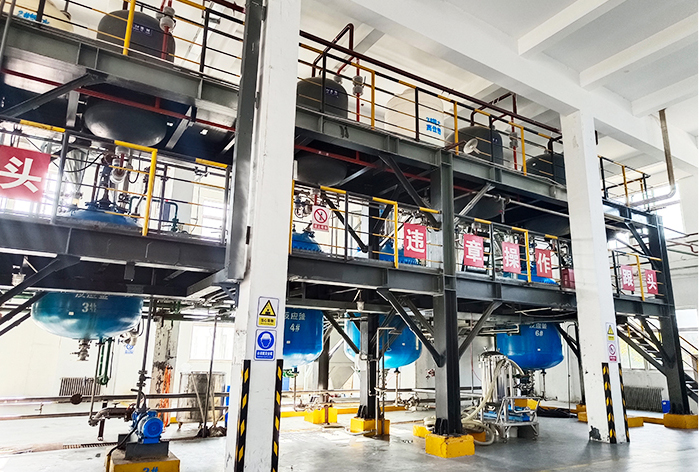
News
Nov . 16, 2024 04:46 Back to list
chelated zinc for agriculture
Chelated Zinc for Agriculture Enhancing Crop Yields and Soil Health
Zinc is an essential micronutrient that plays a crucial role in the growth and development of plants. It is involved in various physiological and biochemical processes, including enzyme function, protein synthesis, and the regulation of growth hormones. However, zinc deficiency is a common problem in agricultural soils worldwide, leading to decreased crop yields and poor plant health. To combat this issue, chelated zinc has emerged as an effective solution, providing farmers with a means to enhance soil nutrient availability and improve crop performance.
What is Chelated Zinc?
Chelated zinc refers to zinc that is chemically bound to organic molecules, known as chelating agents. This bonding enhances the solubility and mobility of zinc in the soil, making it more readily available for plant uptake. Common chelating agents used in agricultural practices include EDTA (ethylenediaminetetraacetic acid), DTPA (diethylenetriaminepentaacetic acid), and EDDHA (ethylenediamine-N,N'-bis(hydroxyphenylacetic acid)). The chelation process effectively prevents zinc from reacting with other soil components, which can lead to its precipitation and unavailability for plants.
Benefits of Chelated Zinc in Agriculture
1. Improved Nutrient Availability One of the primary advantages of using chelated zinc is the enhanced nutrient availability in soil. Since chelated zinc remains soluble in a wider range of pH levels and soil types, it can be more effectively absorbed by plant roots compared to traditional zinc fertilizers. This ensures that crops receive the necessary nutrients for optimal growth.
2. Increased Crop Yields Research has shown that the application of chelated zinc can lead to significant increases in crop yields. Zinc plays a vital role in various physiological processes, including photosynthesis and carbohydrate metabolism, which are critical for plant growth. By providing an adequate supply of zinc, chelated forms can help maximize crop productivity.
chelated zinc for agriculture

3. Improved Plant Health Zinc is fundamental for the synthesis of chlorophyll, the green pigment responsible for photosynthesis. A sufficient supply of zinc leads to healthier, greener plants, which are better equipped to withstand stress from pests, diseases, and environmental factors. Furthermore, adequate zinc levels can enhance the overall quality of crops, leading to better market value.
4. Soil Health The use of chelated zinc can also contribute to improved soil health. By promoting biological activity within the soil ecosystem, chelated zinc can enhance microbial growth, thereby improving soil structure and fertility. Healthier soils are essential for sustainable agricultural practices, as they support long-term crop production and reduce the need for chemical fertilizers.
Application Methods
Chelated zinc can be applied through various methods, including foliar sprays, soil application, and fertigation. Foliar application involves spraying a diluted solution directly onto plant leaves, allowing for rapid absorption. Soil application can be done during planting or as a top-dressing, ensuring that the zinc is accessible as the plant grows. Fertigation, which combines fertilization and irrigation, is another effective method, allowing for the efficient delivery of chelated zinc directly to the plant's root zone.
Conclusion
Incorporating chelated zinc into agricultural practices represents a strategic approach to addressing micronutrient deficiencies in crops. Its ability to improve nutrient availability, enhance crop yields, and promote soil health makes it a valuable tool for farmers seeking to optimize their production systems. As the global demand for food continues to rise, the importance of micronutrient management in agriculture cannot be overstated. By utilizing innovations like chelated zinc, farmers can ensure that they are not only meeting current agricultural challenges but also paving the way for sustainable future practices. With the right application and management strategies, chelated zinc offers a pathway to healthier crops and improved agricultural productivity.
-
Polyaspartic Acid Salts in Agricultural Fertilizers: A Sustainable Solution
NewsJul.21,2025
-
OEM Chelating Agent Preservative Supplier & Manufacturer High-Quality Customized Solutions
NewsJul.08,2025
-
OEM Potassium Chelating Agent Manufacturer - Custom Potassium Oxalate & Citrate Solutions
NewsJul.08,2025
-
OEM Pentasodium DTPA Chelating Agent Supplier & Manufacturer High Purity & Cost-Effective Solutions
NewsJul.08,2025
-
High-Efficiency Chelated Trace Elements Fertilizer Bulk Supplier & Manufacturer Quotes
NewsJul.07,2025
-
High Quality K Formation for a Chelating Agent – Reliable Manufacturer & Supplier
NewsJul.07,2025
